14 Best Plants for Balcony Privacy Along with Simple Care Tips
Balconies can become peaceful retreats with the right plants providing privacy. Choosing the best plants for your space can make a big difference. It is important to understand how to care for these plants so they thrive. This article will introduce some of the most beautiful privacy plants for balconies. You will also find simple care tips to help your plants stay healthy and vibrant.
This post may contain affiliate links, which helps keep this content free. Please read our disclosure for more info.
Arborvitae
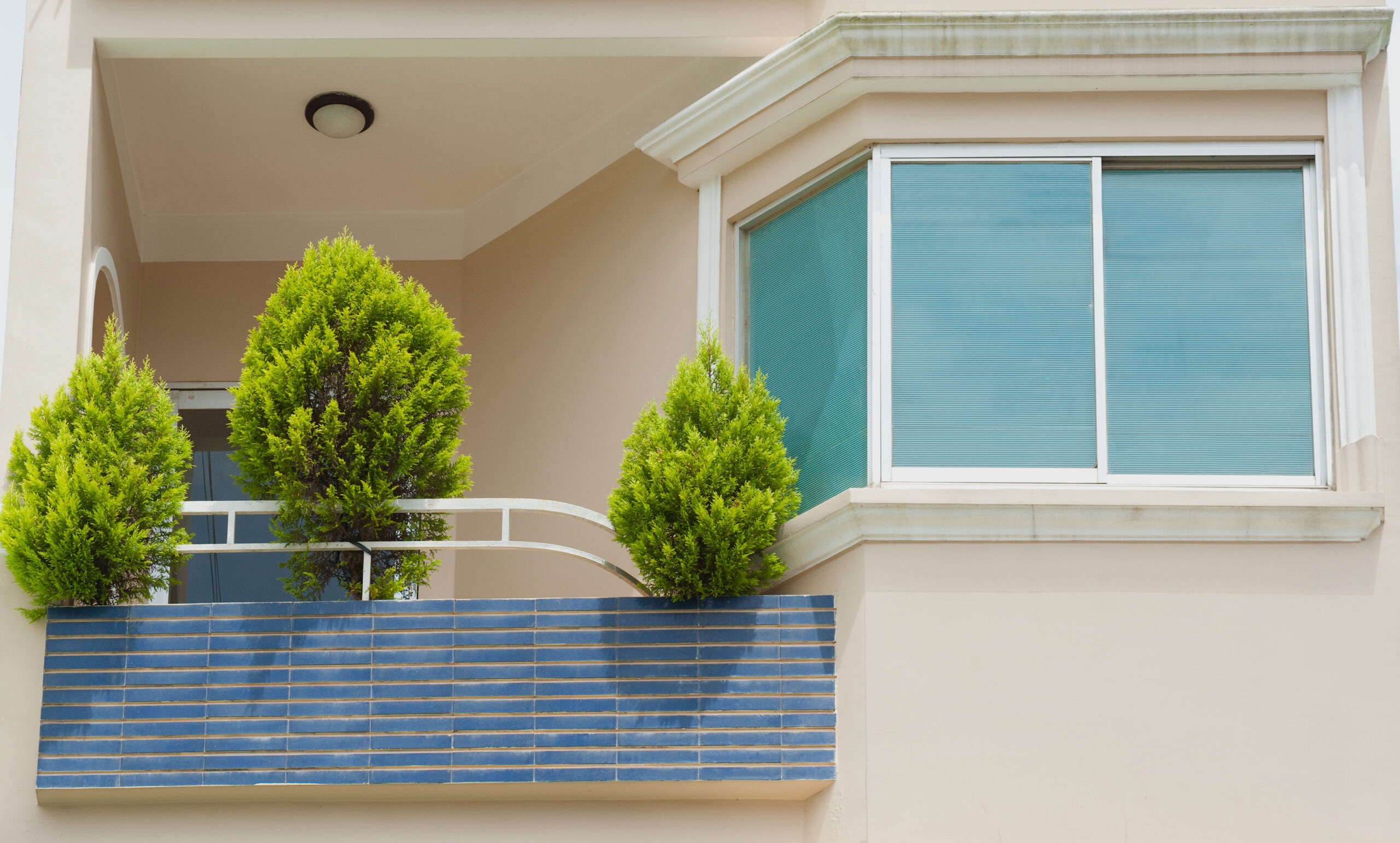
Arborvitae is a popular choice for balcony privacy because of its dense foliage and tall, column-like shape. It creates a natural screen that blocks views while adding greenery to your space. This evergreen plant stays vibrant year-round, giving your balcony a fresh look in every season. You will love its ability to grow quickly without taking up too much horizontal space.
Arborvitae prefers full sun to partial shade and needs well-draining soil that retains moisture but does not stay soggy. Regular watering is important, especially when the plant is young or during dry spells. Mulching around the base helps keep roots cool and moist. It is best to prune lightly to maintain its shape and encourage healthy growth.
Boxwood
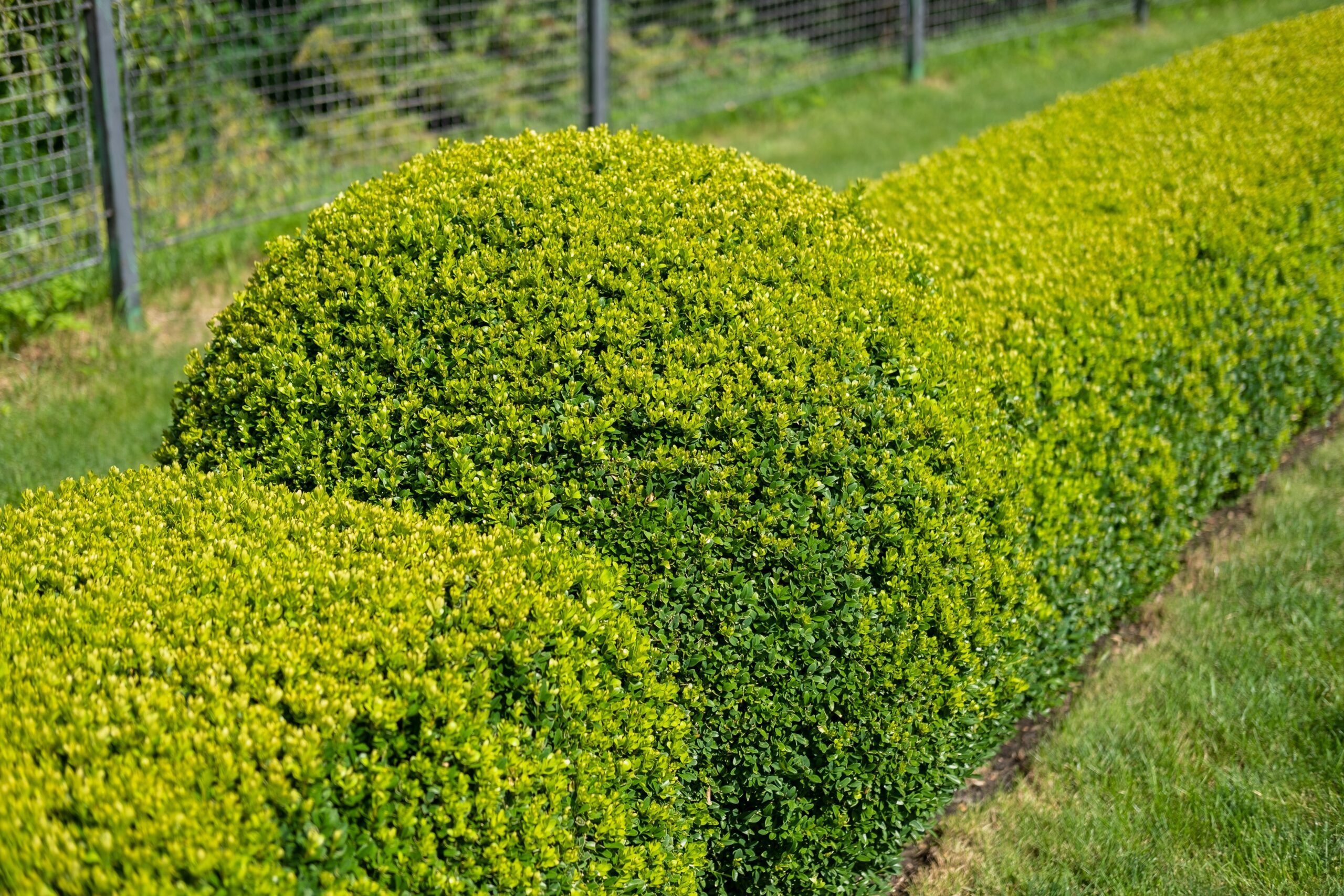
Boxwood is an elegant plant often used to create formal hedges or privacy screens on balconies. Its small, dense leaves offer excellent coverage without overwhelming the space. The neat, compact growth habit makes it easy to shape and control. You will appreciate how it brings a classic touch to your balcony while providing privacy.
This plant thrives in full sun or partial shade and prefers fertile, well-drained soil. Boxwood requires regular watering, especially during hot or dry weather. Feeding it with a balanced fertilizer in spring supports its growth. Pruning after the growing season keeps the plant tidy and encourages fuller foliage.
Bamboo
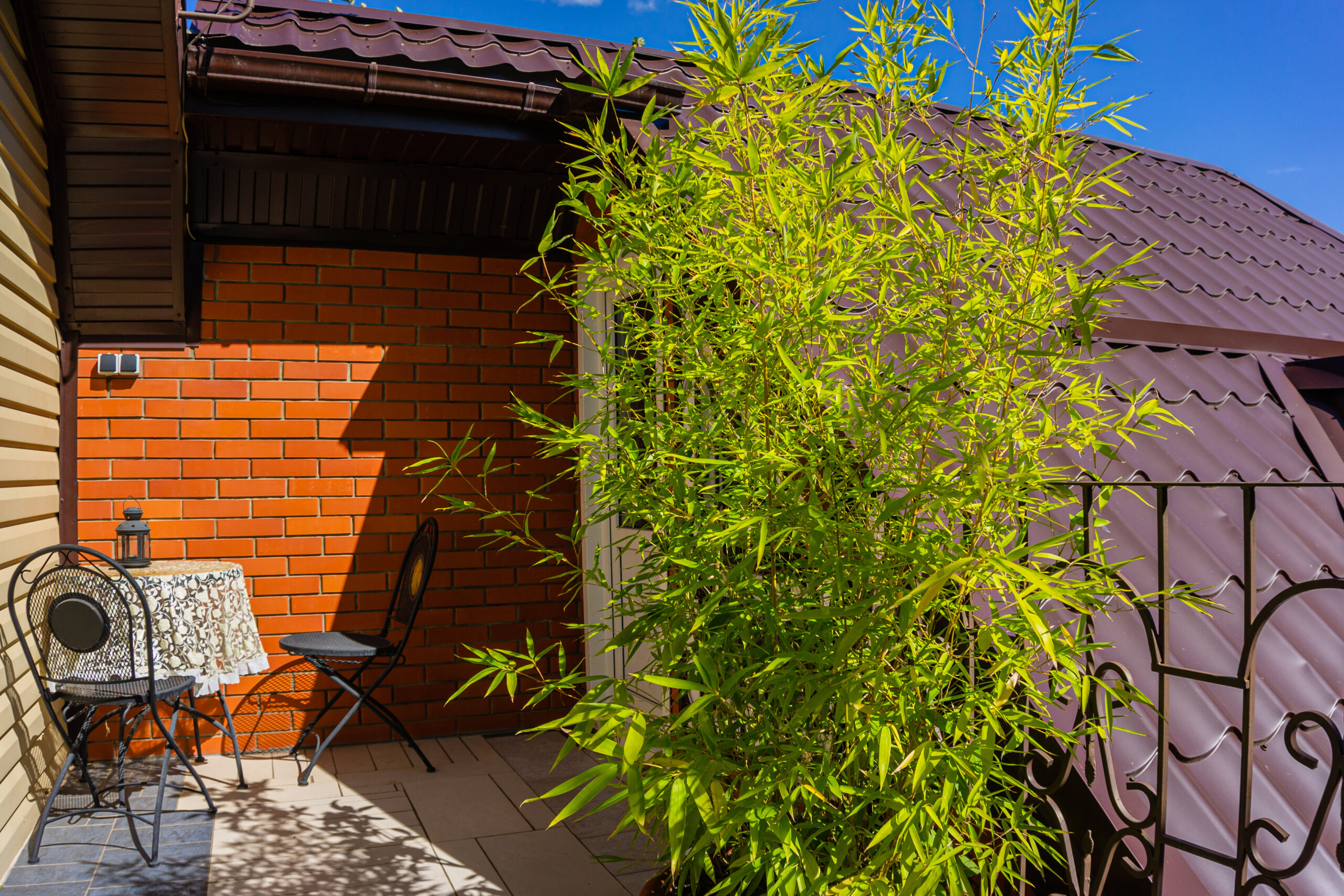
Bamboo is famous for its fast growth and tall, slender stems that create a natural privacy wall quickly. It adds a tropical and modern vibe to balconies with its graceful movement in the breeze. Bamboo is lightweight and flexible, making it perfect for small or narrow balcony spaces. You will enjoy its ability to create a peaceful, secluded atmosphere.
Bamboo grows best in bright, indirect light but can tolerate some direct sun. It prefers rich, well-draining soil with consistent moisture. Avoid letting the soil dry out completely, especially during warmer months. Containing bamboo roots is important to prevent spreading beyond your balcony.
English Ivy
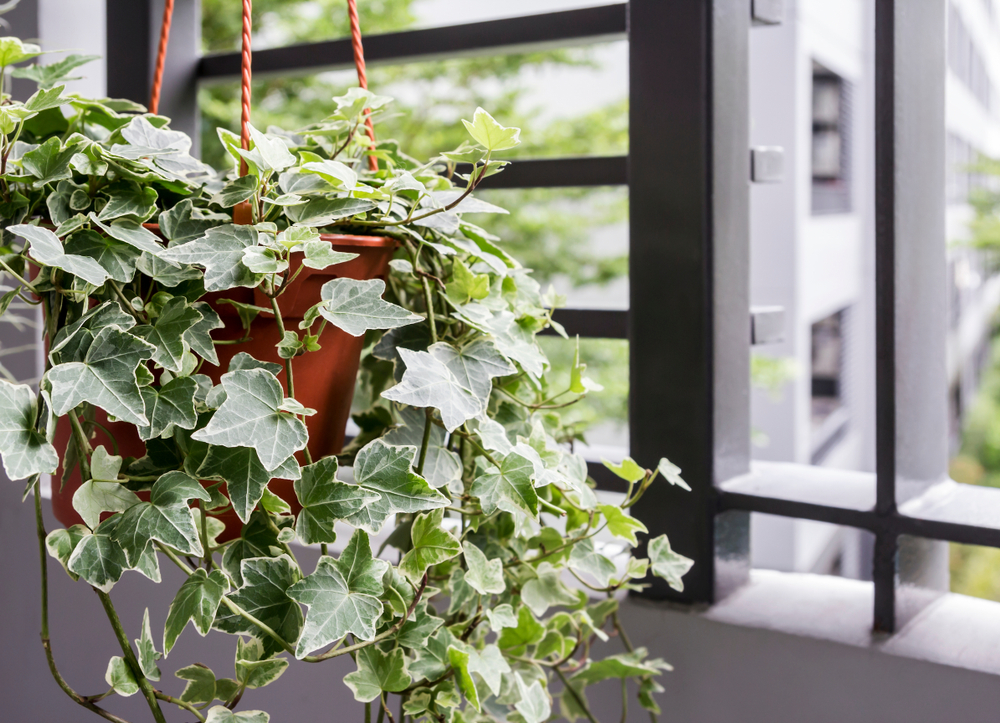
English Ivy is a climbing plant that can cover balcony railings or walls with lush greenery. Its evergreen leaves create a thick curtain that offers privacy and softens hard surfaces. The plant’s trailing habit adds a charming and cozy feel to any outdoor space. You will love how it can quickly transform your balcony into a private garden nook.
English Ivy prefers partial to full shade and moist, well-drained soil. It does not do well in direct, harsh sunlight, which can scorch its leaves. Regular watering is needed to keep the soil slightly damp but not soaked. Prune occasionally to control growth and keep it looking neat.
Ferns
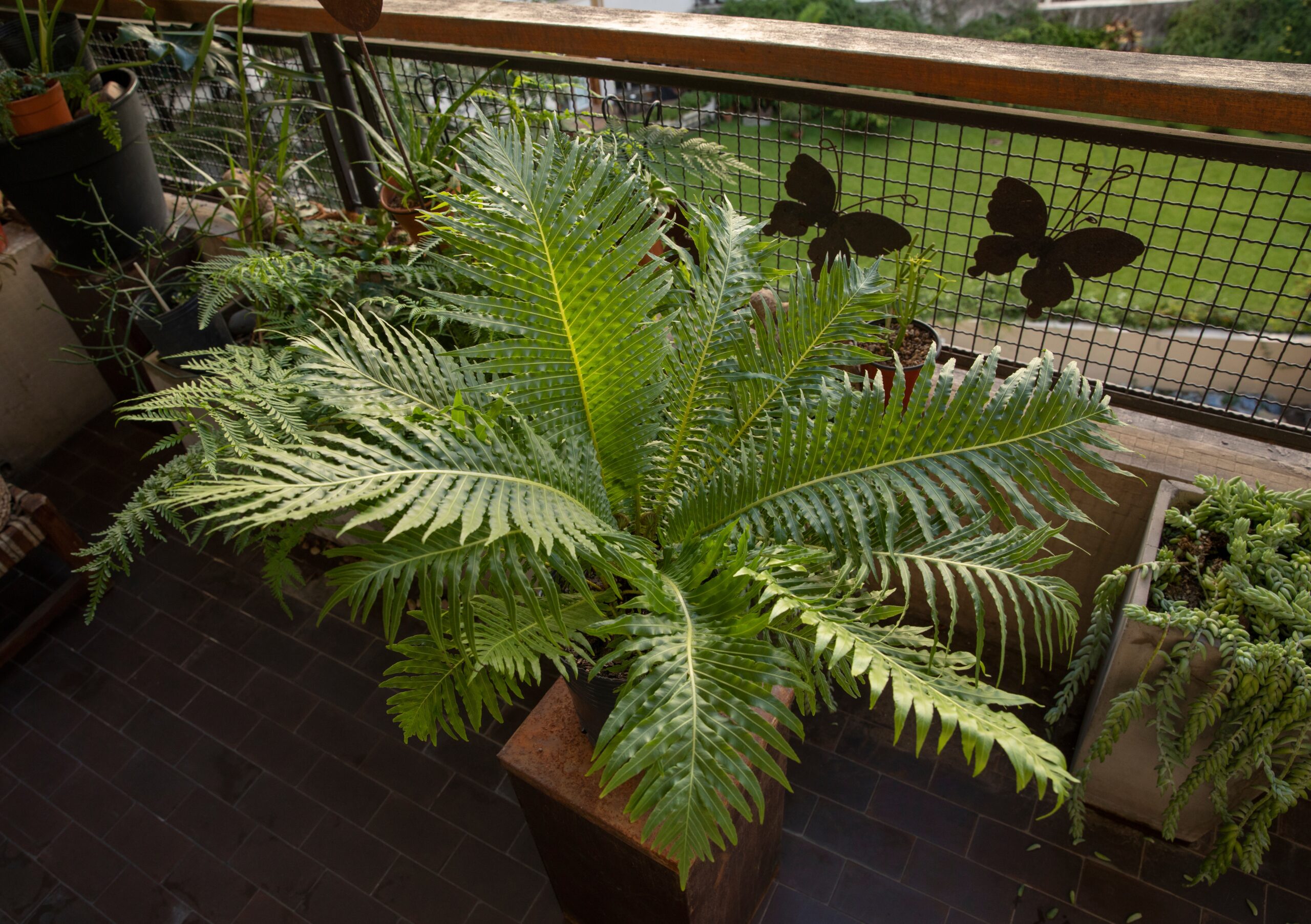
Ferns bring a fresh, woodland look to balconies with their delicate, feathery fronds. They create a natural privacy screen while adding texture and softness to the space. Ferns thrive in shady spots where other plants may struggle, making them versatile for different balcony orientations. You will enjoy their calming, green presence and easy maintenance.
Most ferns prefer indirect or filtered light and require consistently moist, well-draining soil. They do not tolerate drought well, so regular watering is important. Avoid placing them in direct sun, which can cause leaf burn. Mist the fronds occasionally to increase humidity and keep them looking healthy.
Ficus
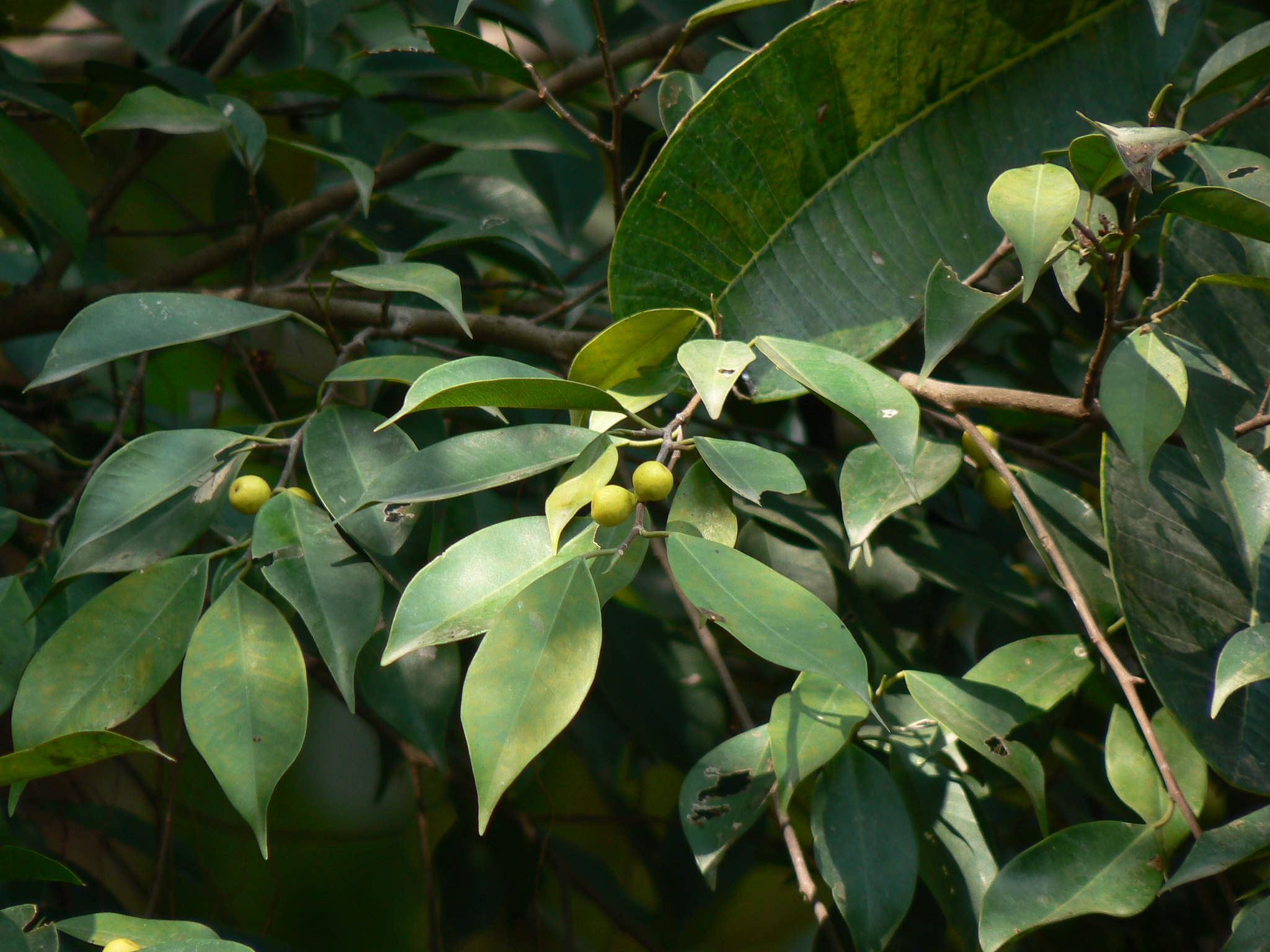
Ficus is a popular balcony privacy plant because of its dense, glossy leaves and fast growth. It provides a solid green wall that helps block out unwanted views and noise. The plant can be shaped or pruned to fit your space perfectly. You will love how it adds a tropical and vibrant feel to your balcony.
Ficus prefers bright, indirect sunlight and well-draining soil that stays moderately moist. Overwatering or waterlogged soil should be avoided to prevent root rot. It benefits from occasional feeding during the growing season. Pruning helps maintain its shape and encourages bushier growth.
Gardenia
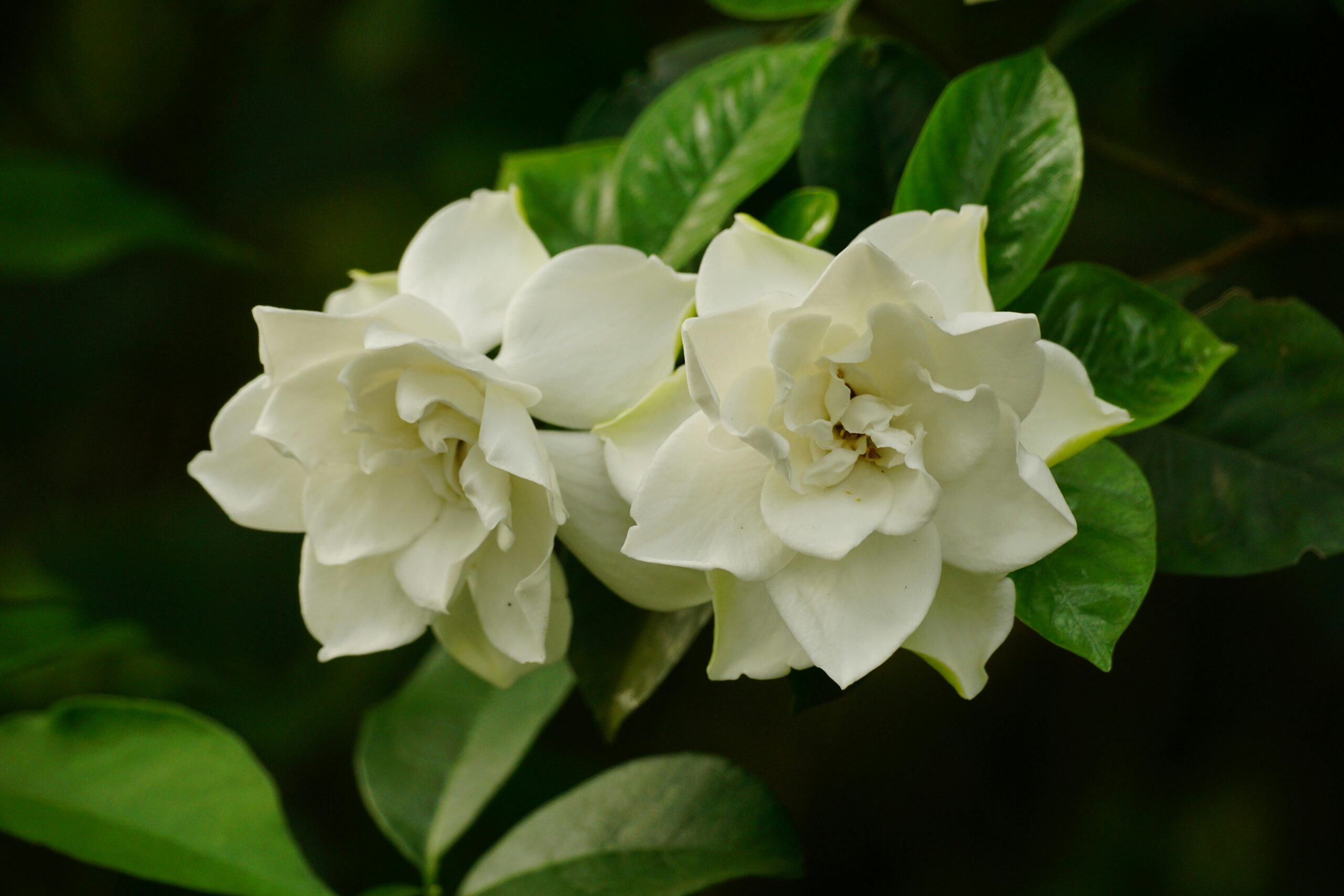
Gardenia is loved for its beautiful, fragrant white flowers and shiny dark green leaves. It makes an attractive privacy plant that not only blocks views but also fills your balcony with a sweet scent. The plant’s lush foliage and flowers create a charming, inviting atmosphere. You will appreciate its elegant look and delightful fragrance.
Gardenia needs bright, indirect light and prefers acidic, well-drained soil rich in organic matter. It requires consistent watering to keep the soil moist but not soaked. Humidity is important, so misting the leaves or placing a humidity tray nearby can help. Feeding with fertilizer designed for acid-loving plants supports healthy blooms.
Hostas
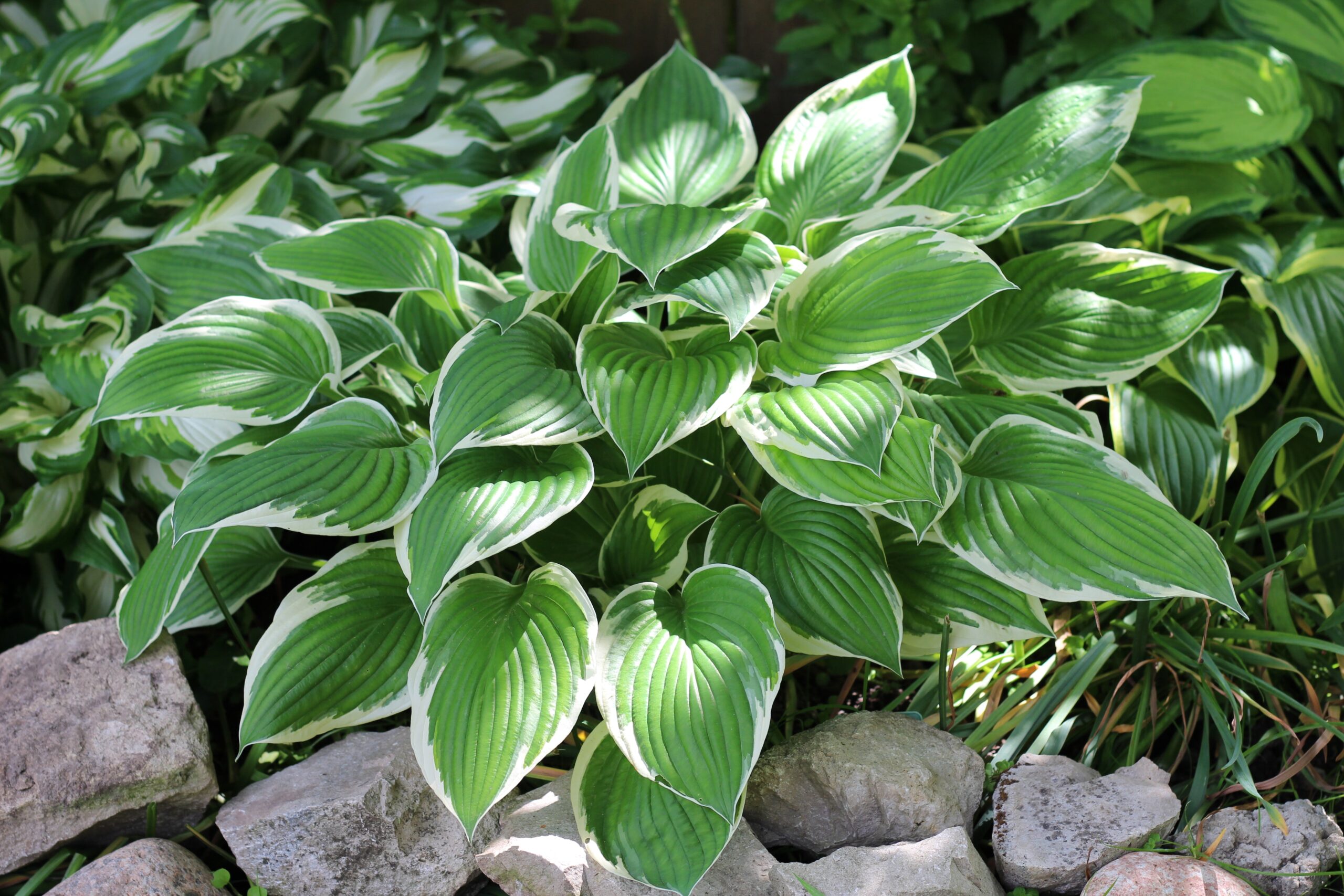
Hostas are valued for their large, broad leaves that offer excellent coverage and privacy on balconies. Their leaves come in various shades of green, blue, and variegated patterns, adding visual interest. Hostas thrive in shaded areas where other plants may not grow well. You will enjoy how they bring lush greenery and texture to your space.
Hostas prefer partial to full shade and soil that is rich, moist, and well-draining. Regular watering is necessary to prevent the soil from drying out. Adding mulch helps retain moisture and keep roots cool. Avoid exposing hostas to strong sun, which can cause leaf damage.
Hydrangea
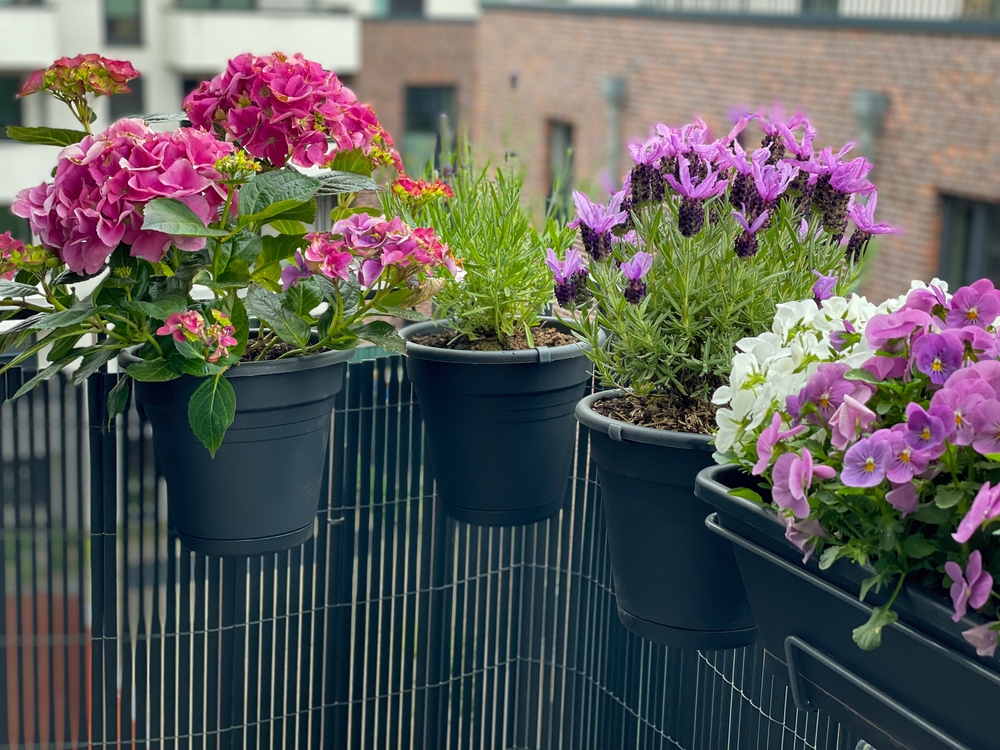
Hydrangea creates a stunning privacy screen with its large clusters of flowers and lush green leaves. Its blooms add a burst of color and charm to any balcony. The plant can grow tall enough to shield your space while providing a soft, welcoming look. You will love the seasonal changes in flower colors and shapes.
Hydrangeas grow best in partial shade and prefer moist, well-drained soil rich in organic material. Water them regularly to keep the soil evenly moist, especially during dry spells. Mulching helps maintain soil moisture and temperature. Adjusting soil pH can influence the flower color for certain hydrangea types.
Italian Cypress
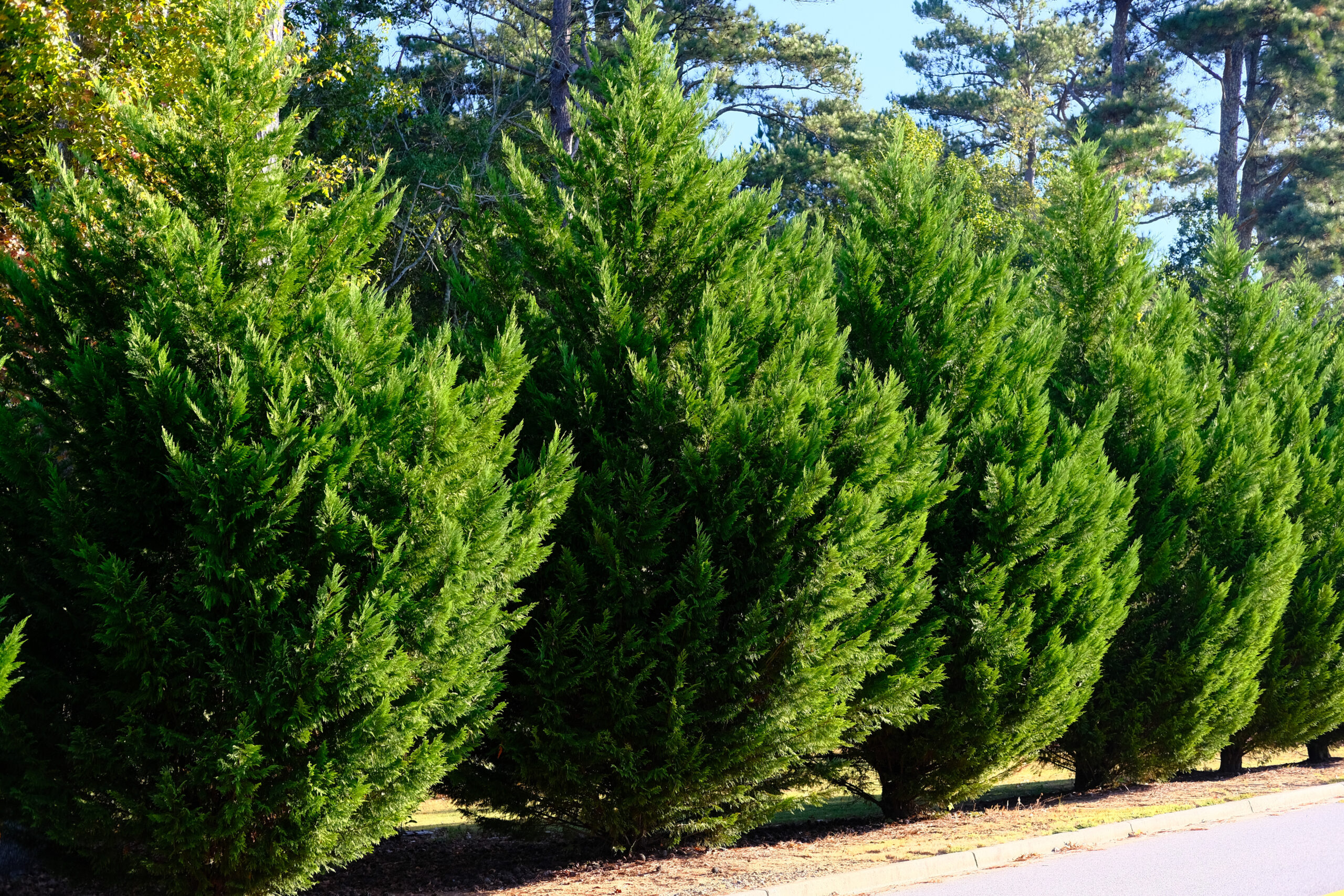
Italian Cypress is known for its narrow, tall shape that creates a strong vertical privacy barrier. Its slender form fits well in small balcony spaces without crowding. The evergreen needles maintain a deep green color throughout the year. You will appreciate how it adds structure and height to your balcony garden.
This plant prefers full sun and well-draining soil with moderate moisture. It tolerates drought better than many other privacy plants, but will grow faster with regular watering. Avoid waterlogged soil to prevent root problems. Pruning is usually not needed, but can be done to maintain the desired height.
Lavender
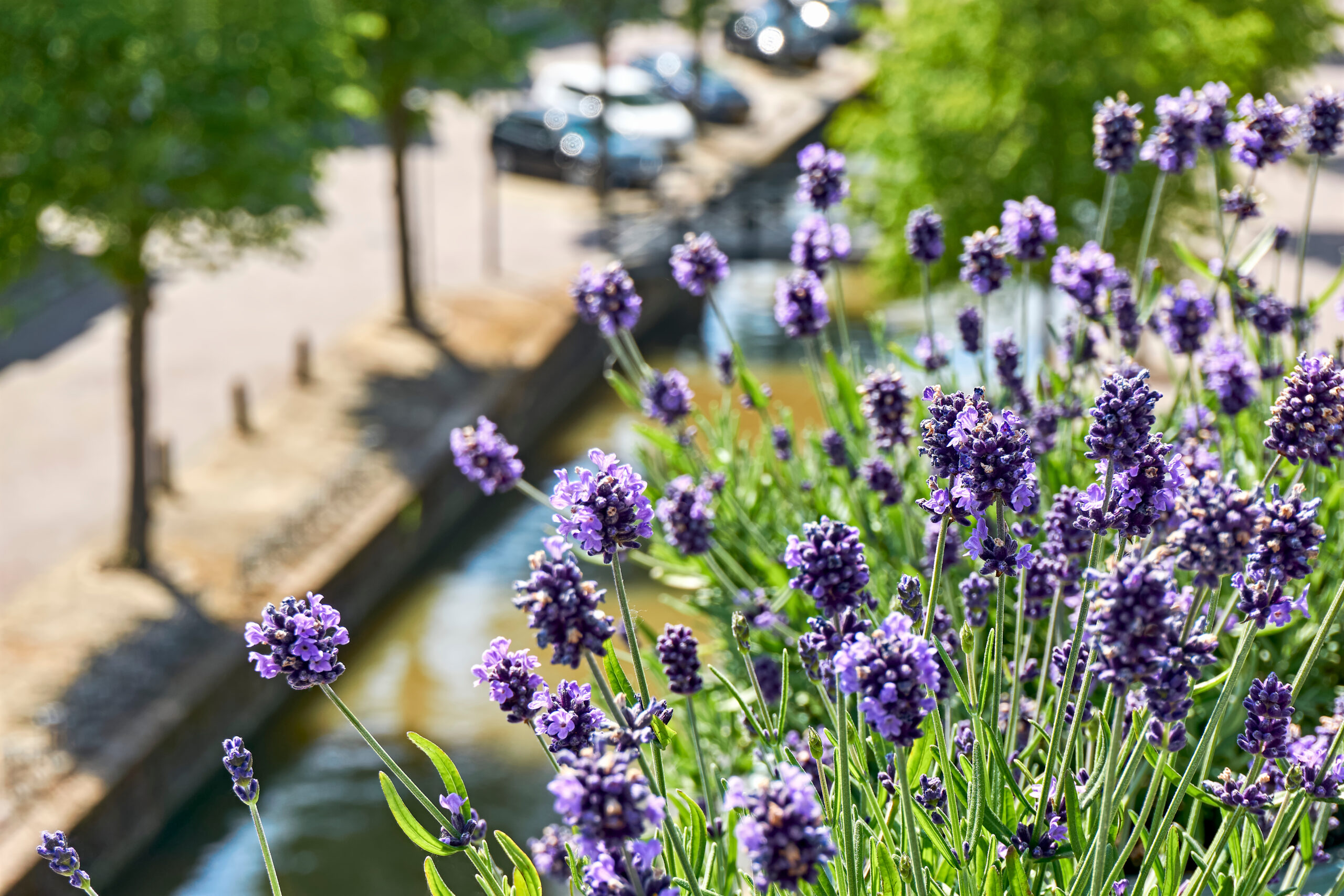
Lavender is a fragrant and attractive privacy plant that adds color and scent to balconies. Its silvery-green foliage and purple flowers create a Mediterranean vibe. Lavender attracts pollinators while providing a screen to block views. You will enjoy its calming scent and low-maintenance nature.
Lavender grows best in full sun and prefers well-drained, sandy or gravelly soil. It does not like to stay wet, so watering should be moderate and only when the soil dries out. Good air circulation helps prevent fungal diseases. Pruning after flowering encourages bushier growth and more blooms next season.
Oleander
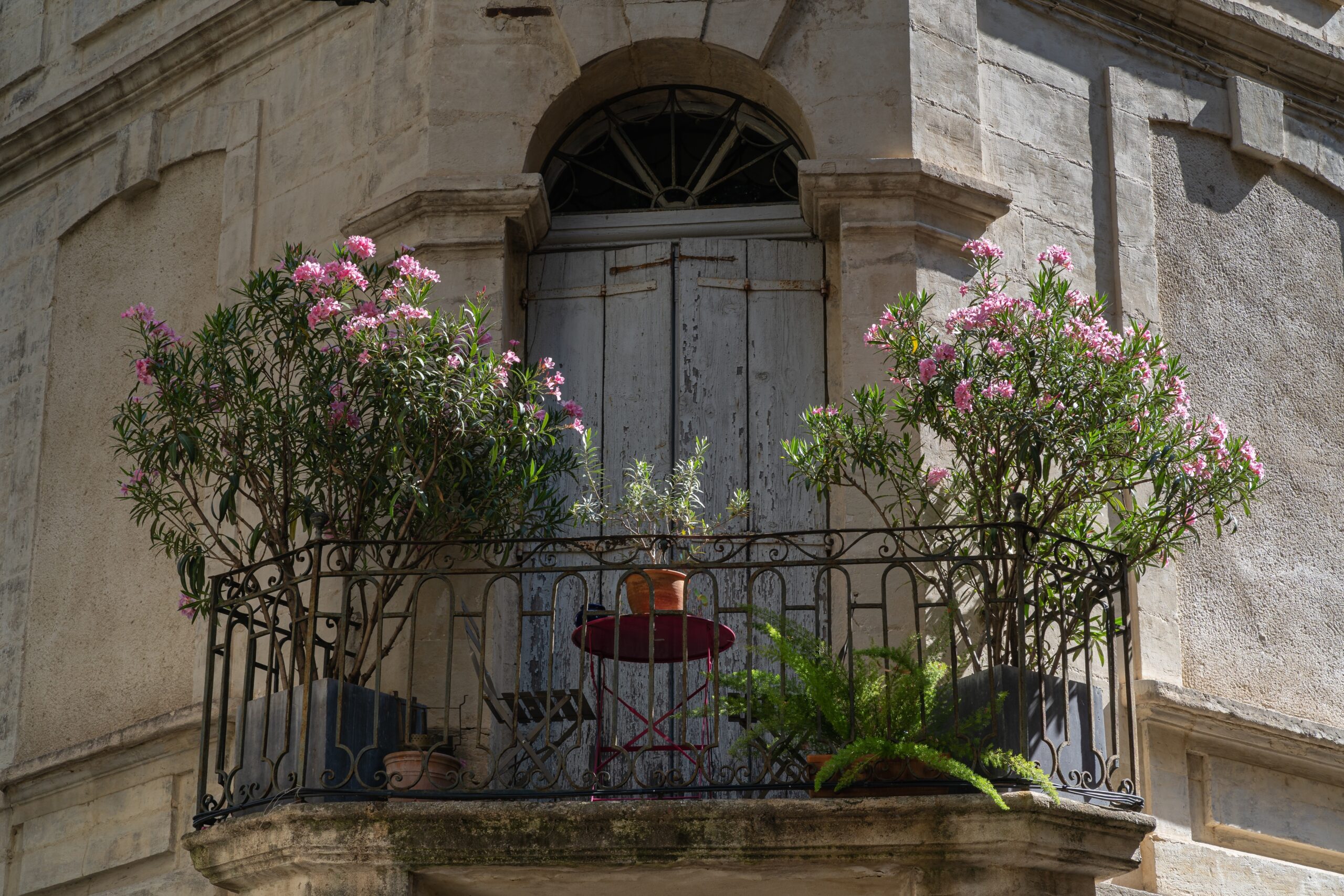
Oleander is a hardy shrub with thick foliage and clusters of colorful flowers that offer excellent privacy. It grows quickly and maintains a dense structure ideal for balcony screens. Oleander adds a tropical feel and vibrant color to your outdoor space. You will enjoy how it brightens your balcony while providing privacy.
Oleander thrives in full sun and prefers well-draining soil that is kept moderately moist. It tolerates drought once established, but does best with regular watering. Pruning helps control its size and shape, especially after flowering. Be cautious, as all parts of this plant are toxic if ingested.
Sky Pencil Holly
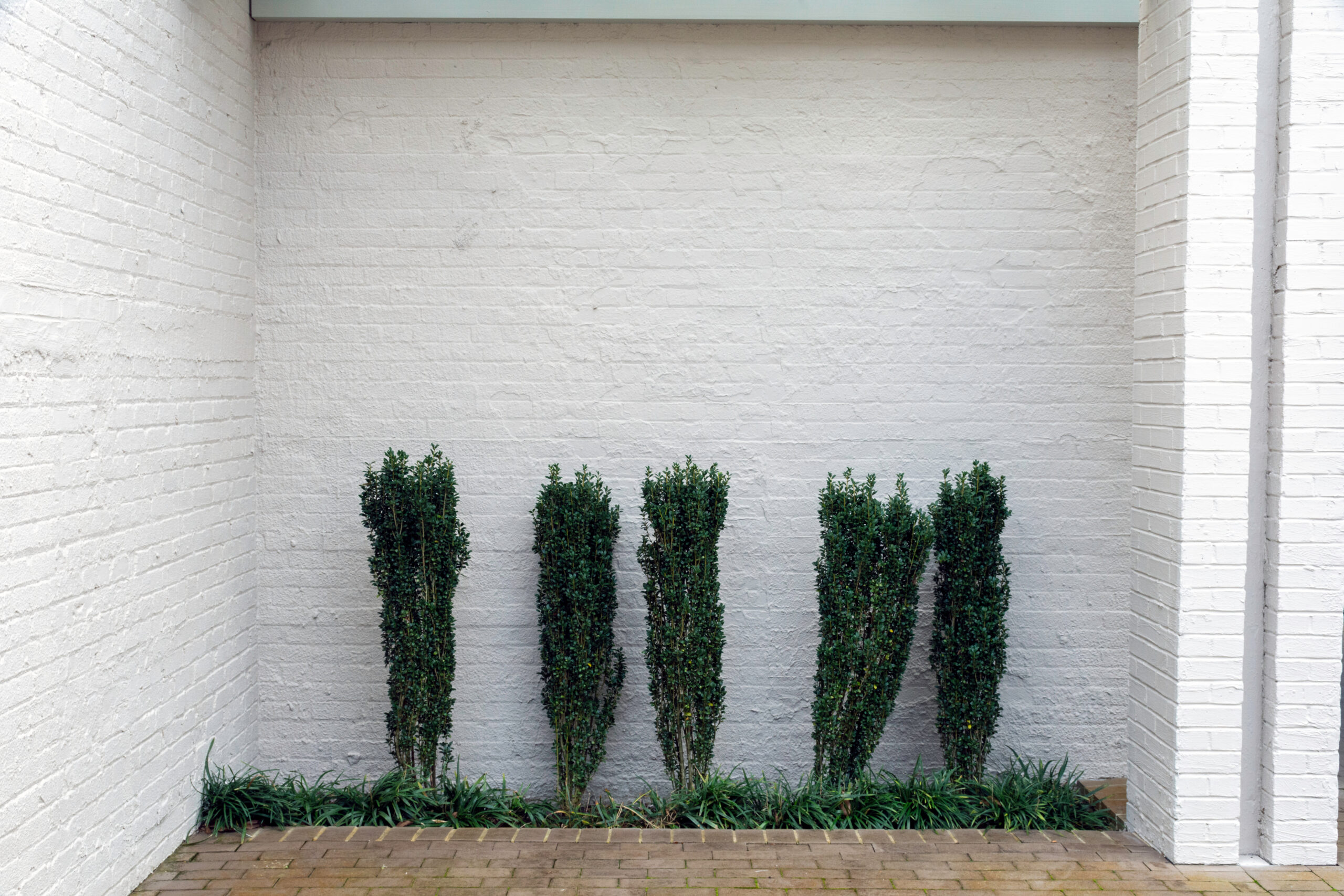
Sky Pencil Holly is a slender, columnar shrub that creates a neat and narrow privacy barrier. Its dark green leaves form a dense screen that fits well in tight balcony spaces. The plant grows upright with minimal spread, making it easy to maintain. You will appreciate its clean lines and elegant presence.
This holly prefers full sun to partial shade and well-draining, slightly acidic soil. Water regularly, especially in dry periods, to keep the soil moist but not soggy. Mulching helps retain moisture and control weeds. Pruning can be done to shape the plant and encourage compact growth.
Succulents
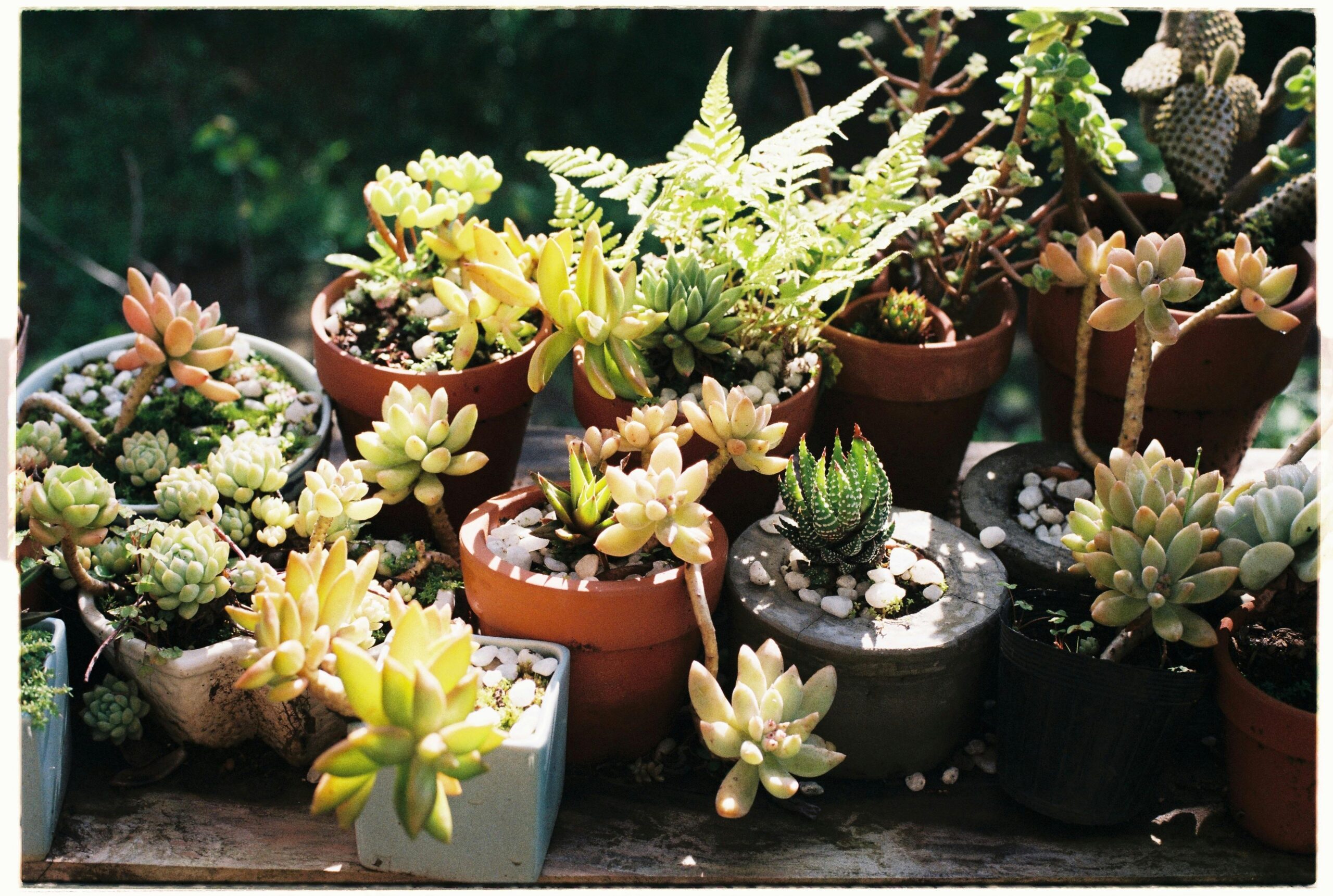
Succulents are a diverse group of plants known for their thick, water-storing leaves and unique shapes. They provide privacy by filling balcony spaces with dense clusters of greenery and interesting textures. Their low water needs make them great for busy or beginner gardeners. You will love their variety and ability to thrive in small containers.
Most succulents need bright light and prefer well-draining, sandy soil to prevent root rot. Water sparingly and allow the soil to dry out completely between watering. Avoid overwatering, which is the most common cause of problems. Succulents can be grouped in pots or arranged to create natural privacy screens.
Finding the perfect privacy plants can turn your balcony into a calm and welcoming place. These plants provide both natural charm and the privacy you need. When cared for properly and given suitable conditions, they grow well and improve your outdoor space. Adding these stunning plants will help create a relaxing spot you will appreciate daily.
This article originally appeared on Avocadu.
